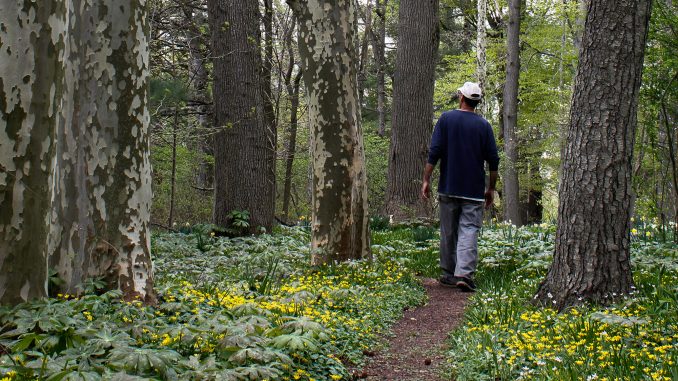
Temple University Ambler Campus celebrated its 60th anniversary on Monday, but the agricultural and horticulture-focused campus has left the university searching for ways to utilize the campus while honoring its original purpose.
Following Temple’s Board of Trustees meeting at Ambler in May, Provost JoAnne Epps was instructed to search for research partnerships with existing Temple schools and colleges.
“We have asked ourselves over the years, ‘What do we do with this place?’” said James Hilty, Temple’s historian and former dean of the Ambler Campus from 2005 to 2010. “They’ve thought about selling it. They’ve thought about developing it for specific research focus. At one time, the school of music has had a little bit of interest in being out there. The medical school was interested in it. But, we’ve yet to find a focus.”
Tyler School of Art, College of Liberal Arts, College of Science and Technology and the College of Public Health partner with Ambler to offer its classes at the campus, said Vicki Lewis McGarvey, vice provost and acting director of Ambler.
McGarvey hopes the campus will be able to partner with the School of Engineering and expand programs with CST and CPH to conduct ecological research.
Epps said research can lead to educational efforts and hopes Ambler’s location in Montgomery County and history will make it a prime place for ecological research, she wrote in an email to The Temple News.
“Ambler’s vast tapestry of environments, including gardens, meadows, streams and woodlands, provide research opportunities that aren’t possible elsewhere in the university,” Epps wrote. “The wealth of natural resources available at the campus can play an integral role in paving the way toward a more sustainable future through education and research.”
Spanning 187 acres, Ambler is home to an arboretum and functions as “a living laboratory for our programs in architectural landscaping and horticulture,” McGarvey said.
“My personal priority will be on getting partners and programs that are really consistent with the values of this campus,” McGarvey added. “This is a green, sustainable campus. Our programs here teach environmental responsibility.”
Ambler originally was the Pennsylvania School of Horticulture for Women, which opened in 1911. There, students were able to study landscape architecture, horticulture or agriculture. Temple purchased the campus in 1958.
Mary Anne Fry, who was an agriculture student at the Pennsylvania School of Horticulture for Women in 1954 and part of the first graduating class after Temple took over, said she saw changes soon after she graduated.
“We had prize-winning Jersey cows and horses,” she said.”It was a full farm. Temple sold the animals the summer of 1958. They did away with the agriculture program completely.”
“It was disappointing at first, but as I grew with Temple Ambler, I realized it was a necessary part,” she added.
Fry went on to teach horticulture at the Ambler Campus, and has worked on exhibits for the Philadelphia flower show. Fry also co-authored the book, A Century of Cultivation 1911-2011, which is a history of the Ambler Campus.
McGarvey said the university is not considering closing or selling the Ambler Campus.
“Any talk of that is just a rumor,” McGarvey said.
Hilty said he sees Ambler as a place where the “clock moves slower” and people are able to get to know one another.
“It’s so special because of the people there,” Hitly said. “If you walk around the campus, there are people you’ll see who have been there for 10 to 15 years. You can get attached.”
“We’re not going to be an agricultural school of course,” he added. “But we have the resources and the faculty and some expertise and we can do better.”


Be the first to comment